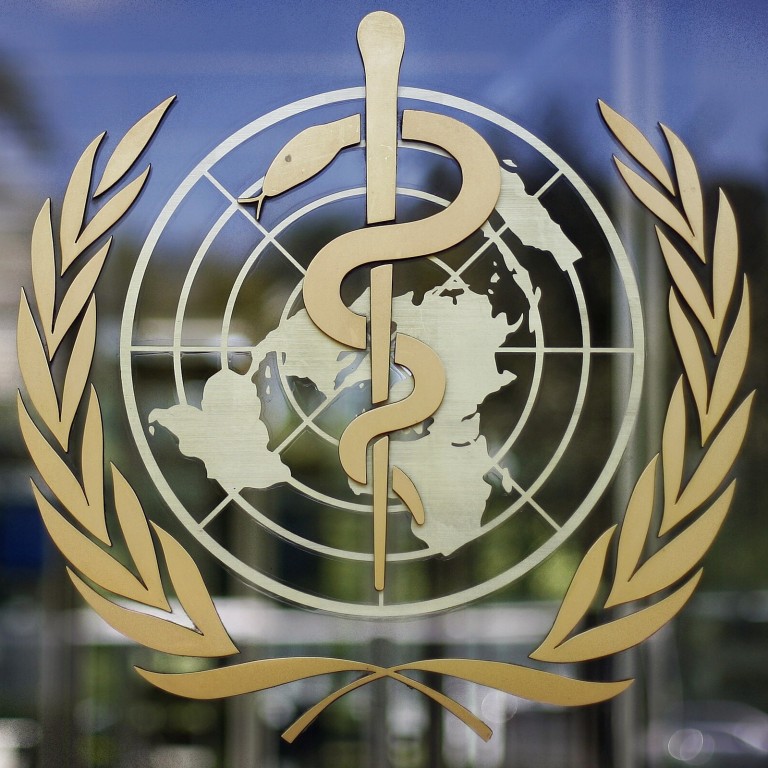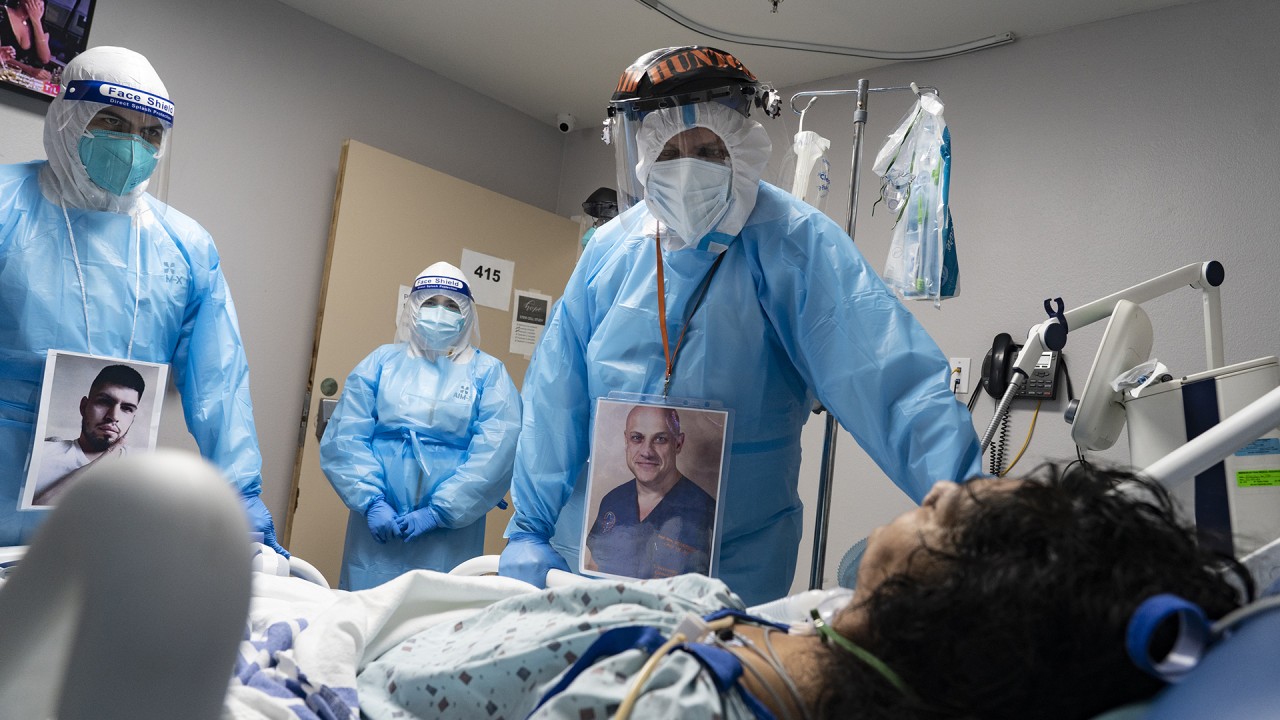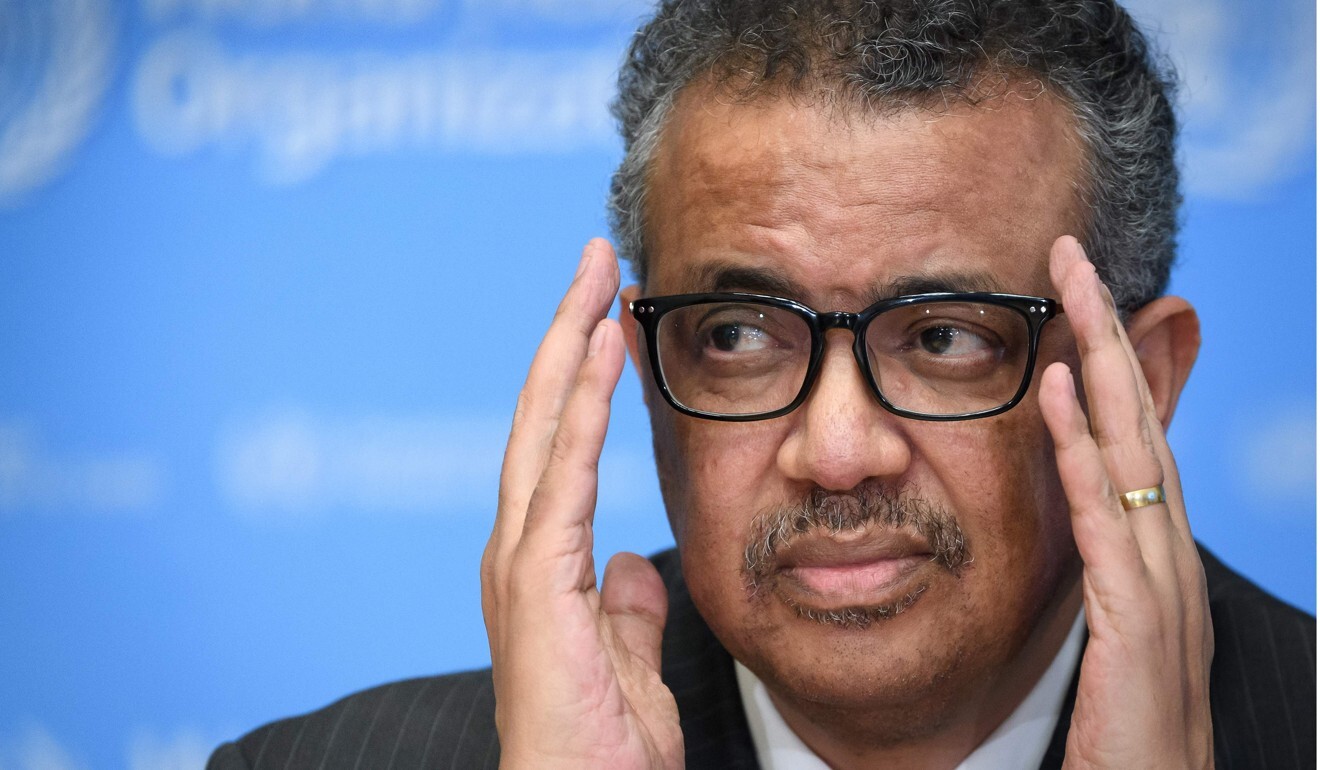
WHO coronavirus investigation team to arrive in China on Thursday
- Beijing’s announcement follows confusion and delay after visa ‘misunderstanding’ and is welcomed by World Health Organization chief
- The international experts will work with Chinese scientists to determine virus origin, health commission says
China’s National Health Commission said in a brief statement that the WHO team would work with Chinese scientists during the trip, without giving further details.
The arrangement was reached “after consultation” between the two sides, Chinese foreign ministry spokesman Zhao Lijian said in a regular press briefing later on Monday.
WHO chief Tedros Adhanom Ghebreyesus said he welcomed China’s announcement.
“We look forward to working closely with our [Chinese] counterparts on this critical mission to identify the virus source & its route of introduction to the human population,” he said in a comment on Twitter.
Scientists seek the invisible in Wuhan investigation into coronavirus
But Chinese foreign ministry spokeswoman Hua Chunying last week said “there might be some misunderstanding”, and that Chinese authorities were in close cooperation with the WHO to handle the pandemic.
The delay placed another question mark over the mission, which has been in the works for months and faced criticism over a lack of transparency as well as concerns that it was too late – more than a year after the virus was first identified in the Chinese city of Wuhan.

04:46
Seeking the invisible: hunt for origins of deadly Covid-19 coronavirus will take scientists to Wuhan
The investigation, seeking to uncover the animal origins of the virus which causes Covid-19, was called for as part of a resolution passed at a meeting of the WHO’s governing body in May.
But politics around the origins of the virus have complicated the mission. The US under the Donald Trump administration has sought to blame China for the outbreak, while Beijing has launched a campaign questioning whether the virus emerged in China or was merely first identified there.
Beijing has characterised the WHO mission to China as the “China part” of a global effort to identify the origins of the virus. The WHO has said the mission could lead scientists out of China, but must start in Wuhan where the first known cases were identified.
In July, two WHO experts travelled to China and worked with health authorities to set out terms of reference for the mission, including research to be conducted by Chinese scientists and an international team of experts. The UN body at that time said the mission may begin in a “matter of weeks”.
WHO names line-up for international team looking into coronavirus origins
The international team and Chinese counterparts held their first meeting, online, at the end of October, after a selection process for the international experts, which included a submission of candidates to Beijing. They have held four meetings so far, China’s National Health Commission said on Saturday.
The field mission is meant to begin in Wuhan, and will include delving into hospital records to identify cases that may have existed earlier than the first ones identified in China in December 2019. Research will also include looking again at the seafood market linked to the first known cluster of patients.
Its role, either as the site where the virus first spilled into humans or as a location where the virus spread quickly among people, remains unknown. Experts believe that the virus came from an animal, likely a bat, before passing into humans, perhaps via an intermediary host.

Chinese scientists involved in the WHO mission are expected to have already begun the work, with the international expert team reviewing data and findings. Little information from China’s own research into the source has been publicly released.
The WHO has warned that uncovering the origins of new viruses could take years, and this mission may only lay the groundwork for future research.
Observers, meanwhile, said the success of this mission, and its acceptance by the international community, would depend on how much access the visiting team was granted.
“The WHO would greatly benefit if the Chinese would give the experts unlimited access to people, data and locations,” said Ayelet Berman, an adjunct assistant professor at the National University of Singapore Faculty of Law. “But I doubt it’s going to be that simple.”
She pointed to the WHO’s limited power to demand access as it was dependent on Beijing, both to be invited into the country and during the research itself.
But Beijing has incentive to make sure that the mission is viewed as credible, according to Dominic Meagher, a visiting fellow at the Australian National University.
“China is facing an external trust problem … their interests have to be aligned with letting this investigation go as freely as possible,” he said. “If [the international experts] come out of the mission and say, ‘we think this happened, but we didn’t get clear access to people, or we weren’t allowed into these areas’ then who is going to see that as vindicating China?”
However, he said last week’s delay did not instil confidence that the mission was a high priority for the Chinese leadership.
Although Beijing balked at calls last spring for an inquiry into how the outbreak started, it has repeatedly defended its record of working with the WHO on tracing the source of the virus.
Wang Yiwei, an international relations professor at Renmin University of China, said: “China has always highlighted its cooperation with the WHO, particularly for finding the scientific source of the virus, [but] not for political purposes … that’s what China of course cannot accept.”
Additional reporting by Teddy Ng

